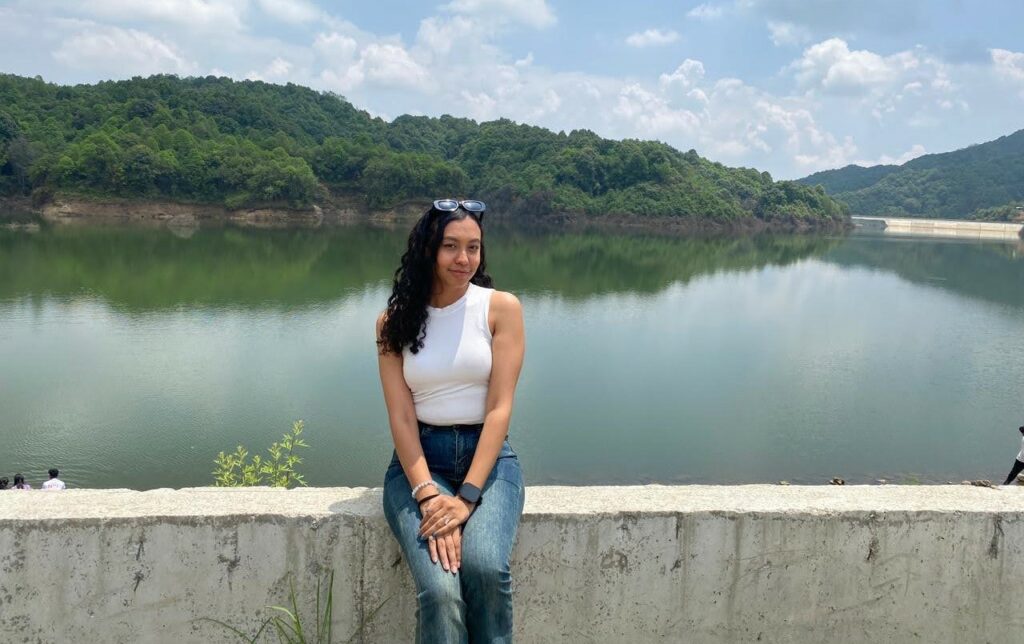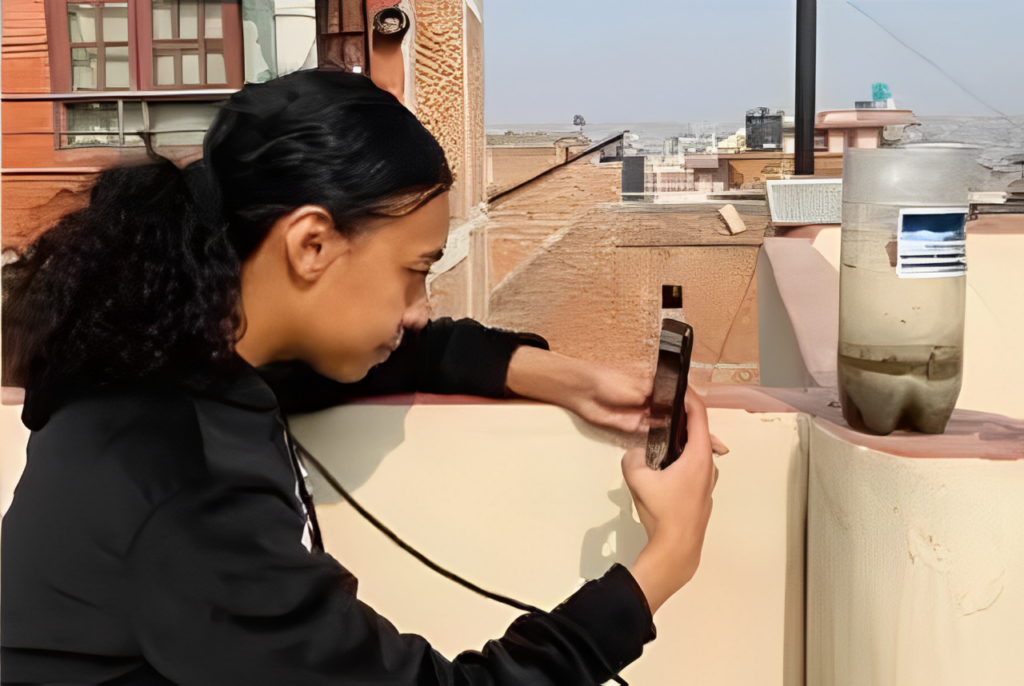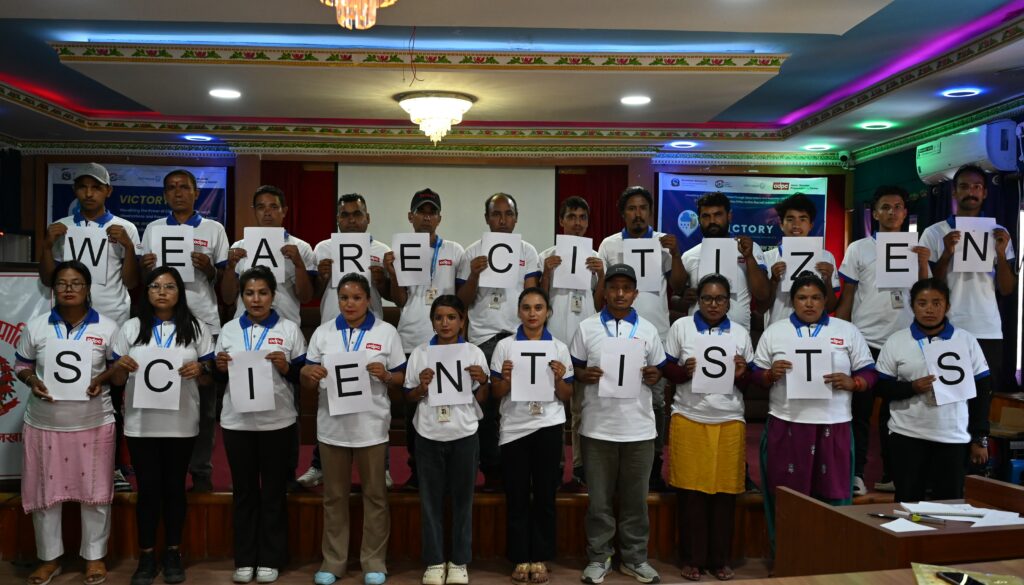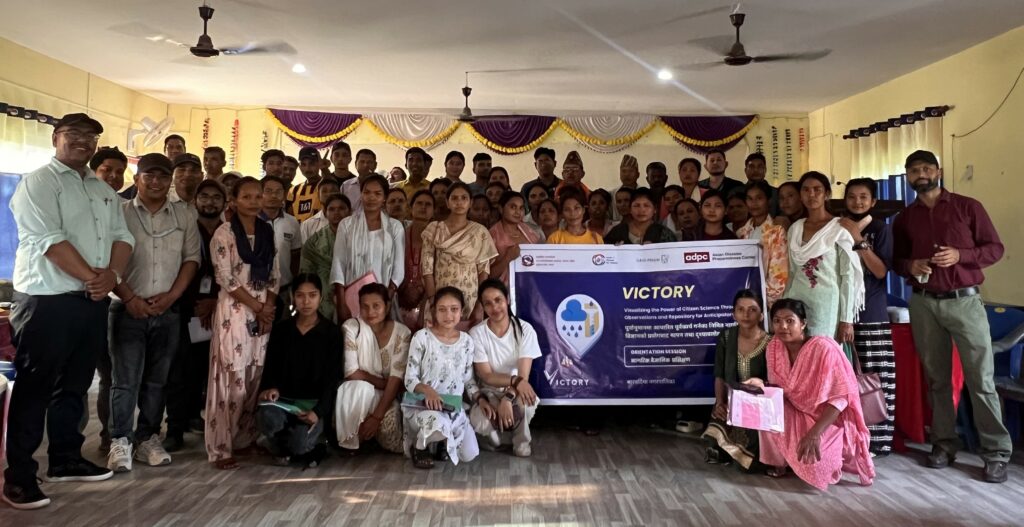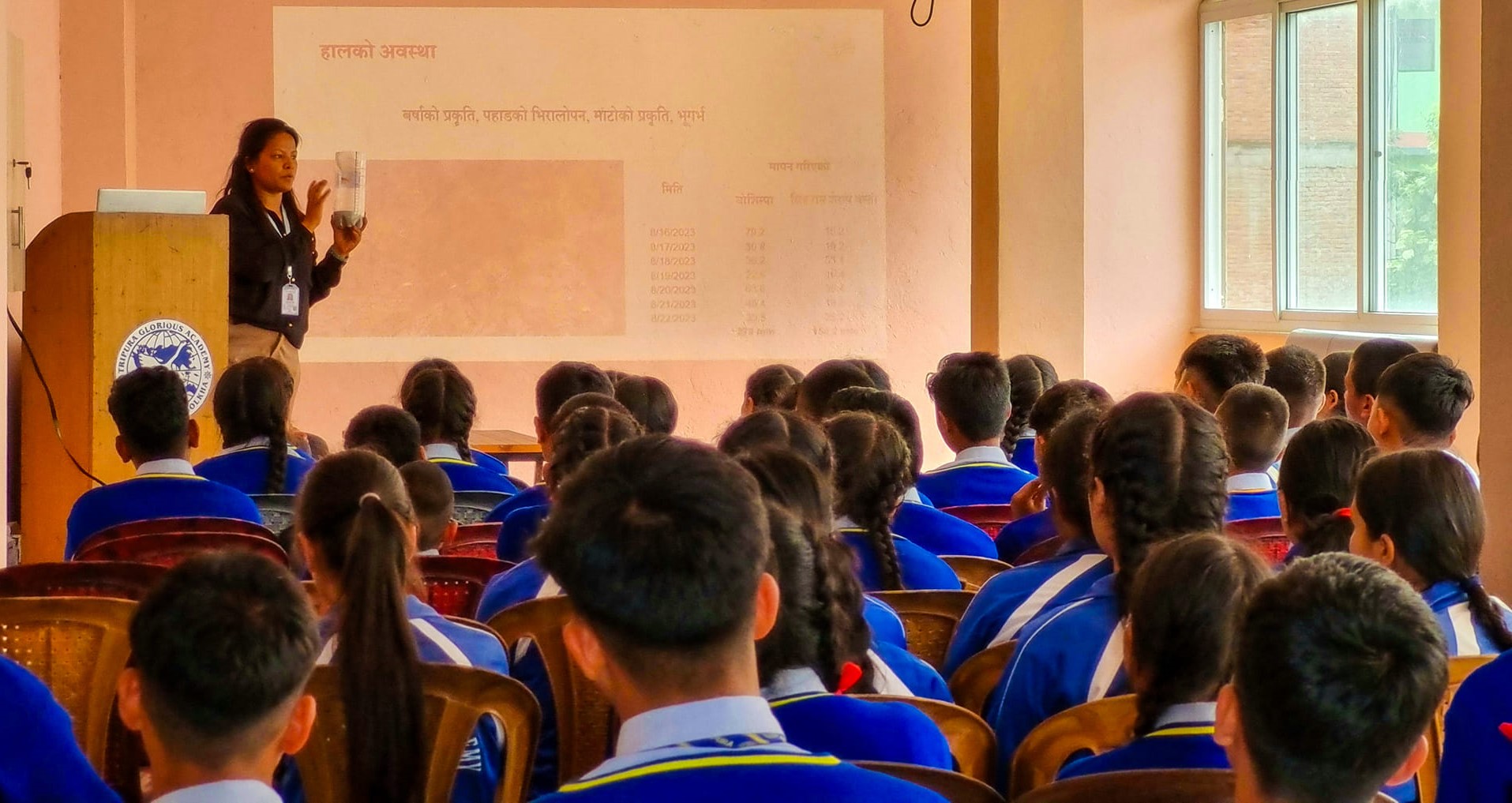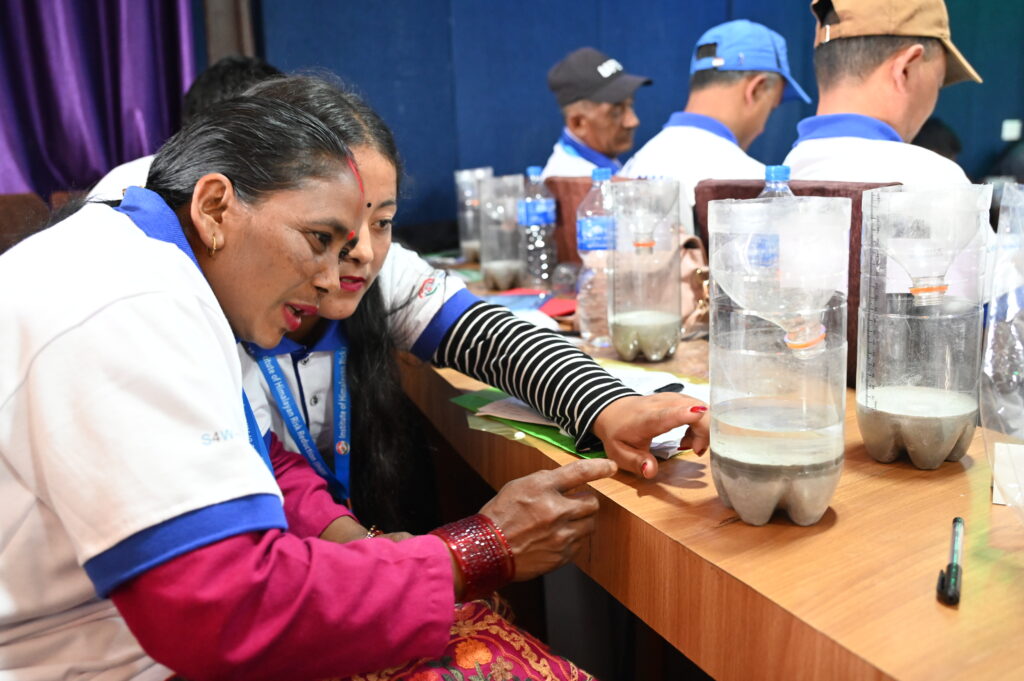Citizen Science Celebration 2024
By Rohinee Bishwas Mandal and Hanik Lakhe
Each April, Citizen Science Month is celebrated to highlight the significance of citizen science and its impact on scientific research and environmental conservation efforts. It serves as a platform to raise awareness about the vital role played by citizen scientists and the positive contributions they make to society. This year, on April 20th, 2024, Smartphones For Water Nepal (S4W-Nepal) hosted the Citizen Science Celebration event at Universal Engineering and Science College. The event was dedicated to honoring and expressing gratitude to the dedicated citizen scientists of S4W-Nepal who contribute to water resource monitoring and research activities. The celebration featured esteemed guests and speakers, including Dr. Bhesh Raj Thapa, General Secretary at S4W-Nepal, who served as the session chair. Dr. Madan Lall Shrestha, an Academician at the Nepal Academy of Science and Technology (NAST), graced the event as the chief guest, while Mr. Rajaram Prajapati, the SmartPhones4Water (S4W) Global Ambassador, joined as a special guest. Among the distinguished attendees were Dr. Rabin Malla (Executive Director, Center of Research for Environment, Energy and Water), Dr. Saurav KC (Deputy Executive Director, Center of Research for Environment, Energy and Water), Er. Suraj Gautam (Executive Director, Institute of Himalayan Risk Reduction), Mr. Niranjan Bista (Program Coordinator, The Small Earth Nepal), and Dr. Alka Sapkota (Board Member, S4W-Nepal). Most importantly, the event warmly welcomed the motivated citizen scientists of S4W-Nepal, whose presence and contributions added significant value to the celebration.
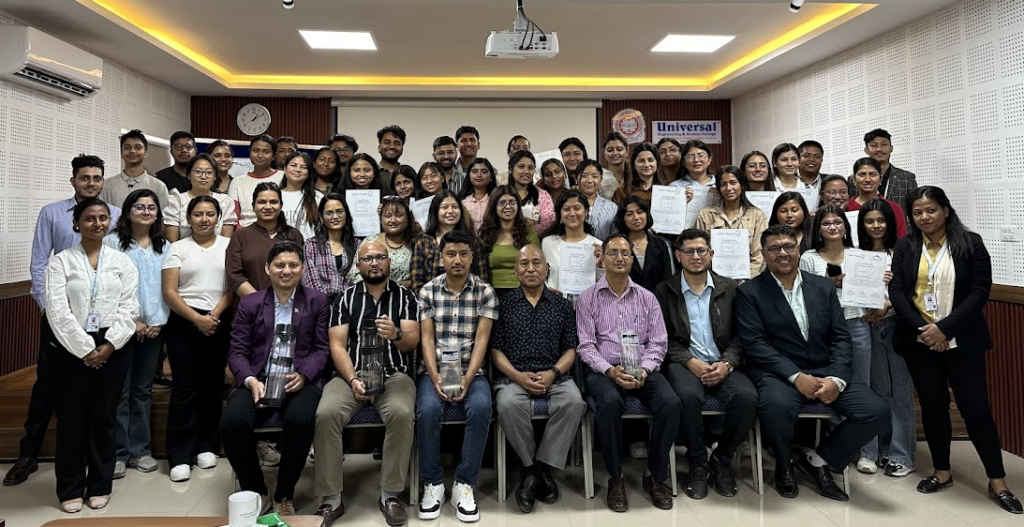
The program began with a brief welcome and introduction by the emcee, Research Assistant Ms. Rohinee Bishwas Mandal, followed by a welcome speech from Dr. Sanjiv Neupane, CEO of S4W-Nepal. Subsequently, a brief introduction session via Mentimeter that aimed at collecting background information about all participants and engaging them effectively, was conducted. Following this, Research Associate Mr. Sudeep Duwal delivered a presentation on “Citizen Science-Based Hydro-Meteorological Monitoring in the Kathmandu Valley,” focusing on the hydrological monitoring activities of S4W-Nepal.
The special guest, Mr. Rajaram Prajapati, shared his remarks, referencing a climatic event from July 28, 1997, in Colorado, USA, where unexpected heavy rainfall occurred, surpassing forecasts based on advanced technology. Through this, he underscored the necessity for ground-based, evidence-based local monitoring to complement technological forecasting methods, ensuring more accurate predictions. He introduced S4W-Nepal’s “Soda Bottle Science” concept and other global projects of S4W, such as the ‘Schools and Satellites’ in Africa and ‘Delft Meets Rain’ in the Netherlands, as steps toward it. Prajapati emphasized the importance of monitoring hydro-meteorological data, with only 9% of the least developed countries currently doing adequate monitoring. Moreover, he stressed the value of human observation and encouraged youth involvement in collaborative efforts for better progress.
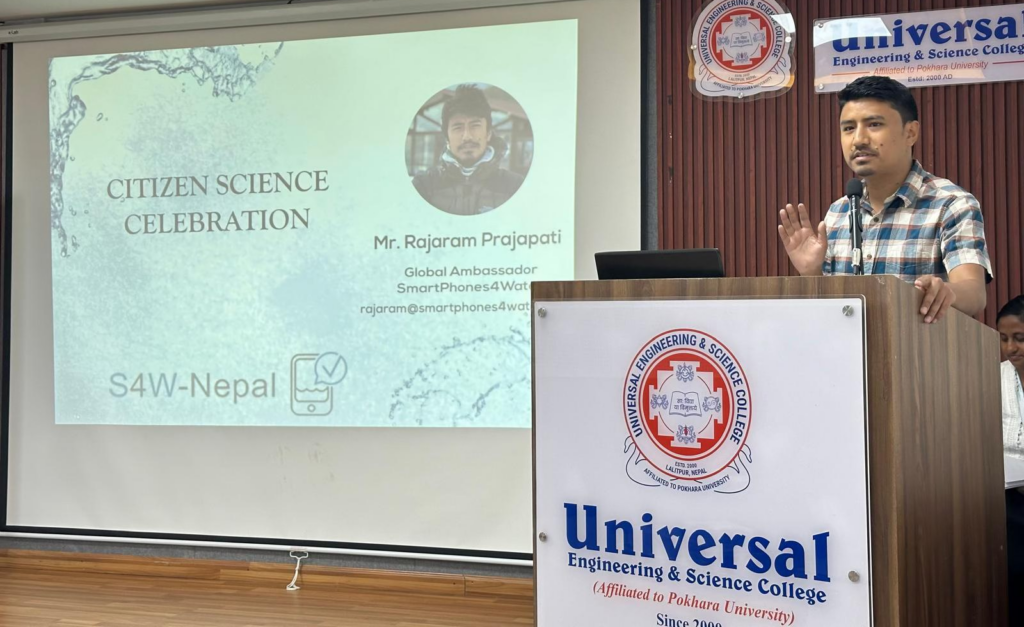
Dr. Madan Lall Shrestha, our esteemed Chief Guest, emphasized in his remarks the crucial role of Citizen Science in monitoring rainfall. He highlighted the need for prior validation and standardization by comparing it with DHM/satellite data before its end use. Moreover, he motivated S4W-Nepal’s team to initiate monitoring projects in unmonitored areas. Dr. Shrestha envisioned collaboration with international organizations such as the World Meteorological Organization, and UNESCO to advance this innovative concept. He also encouraged the young citizen scientists to continue generating data and using it confidently in their research.
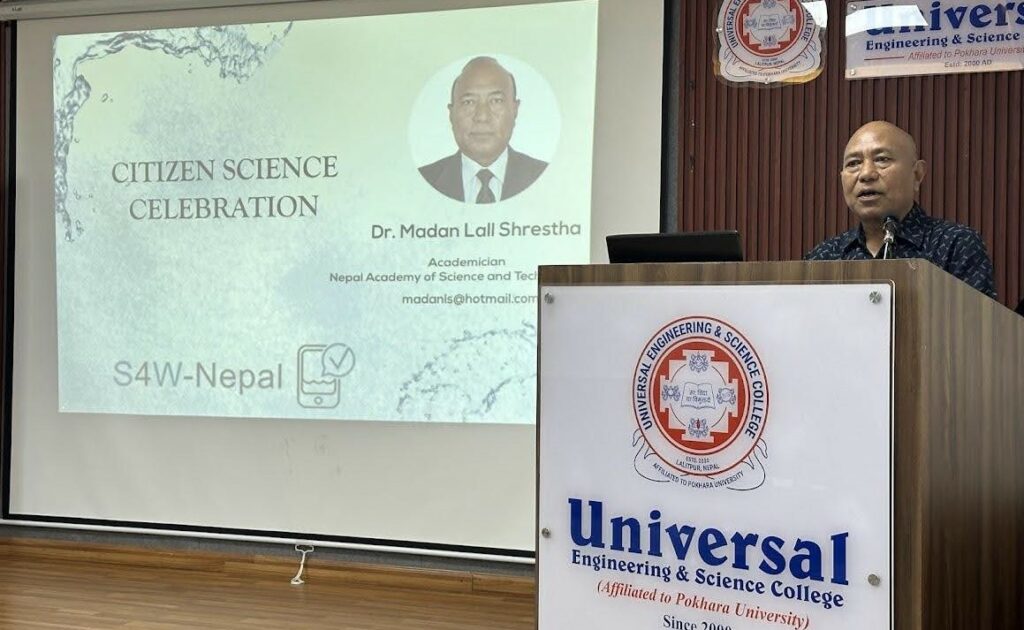
The formal session was followed by certificate distribution. Certificates were distributed to Citizen Scientists who contributed to monitoring of suspended sediment, groundwater level, and rainfall. The rainfall and groundwater “Citizen Scientist of the Year 2023”, Mr. Sagar Gosai and Ms. Shrena Shrestha, were awarded a token of appreciation for their significant contributions in rainfall and groundwater data monitoring, respectively. Then, a few citizen scientists also shared their experiences related to water monitoring.
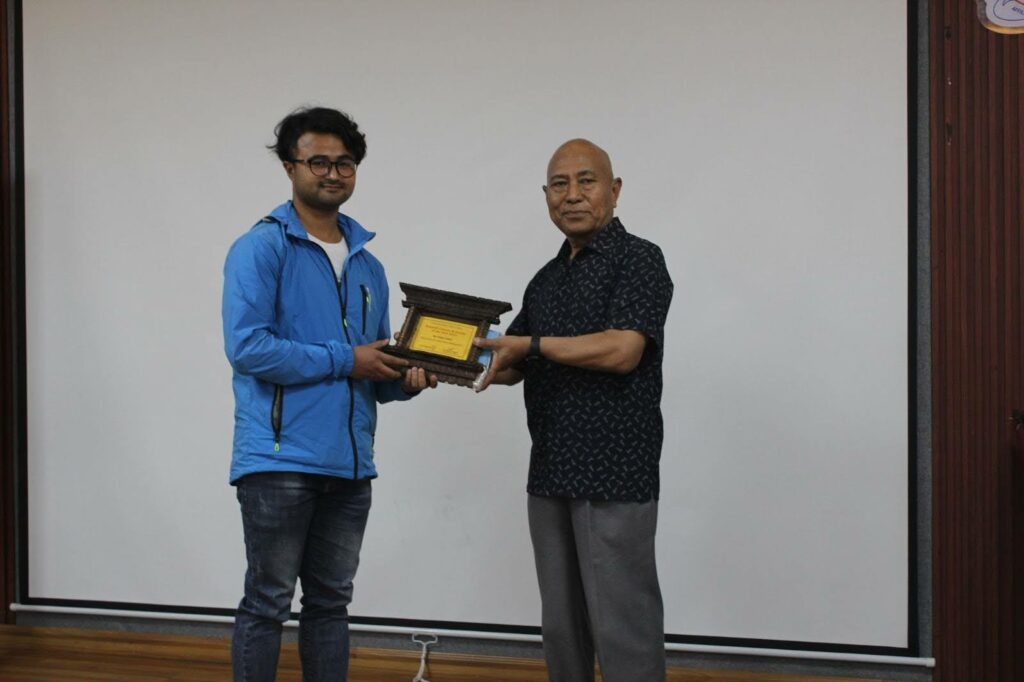
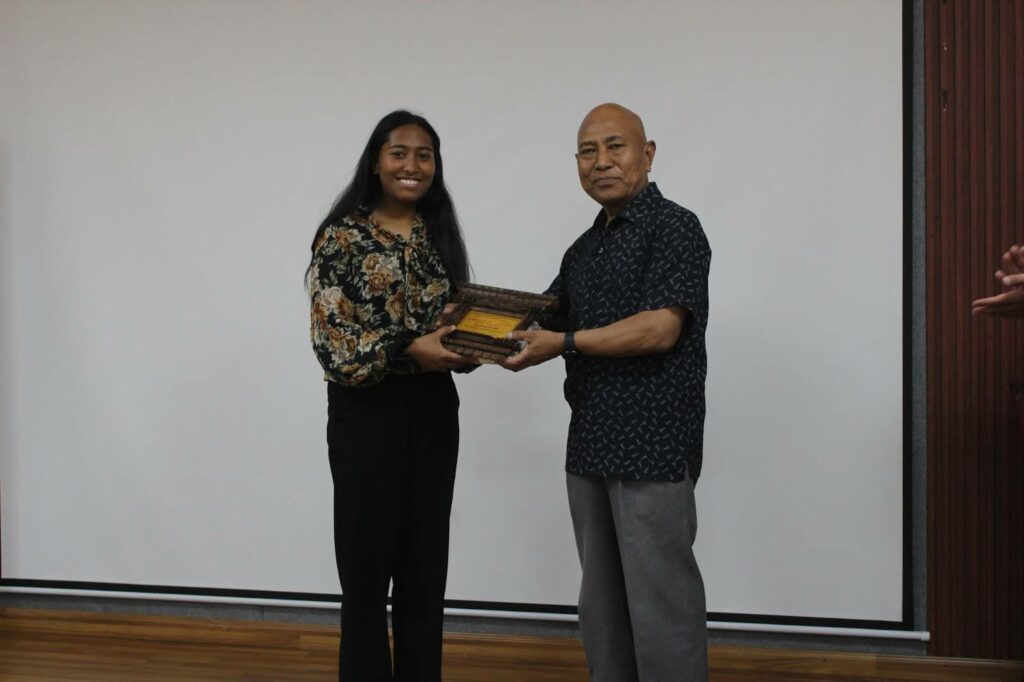
Following this, Research Associate Goma Khadka moderated a round table discussion. Five groups of participants interacted and discussed various questions provided to them regarding citizen science. The motivation to be a part of the citizen science campaign, possible challenges in citizen science, achievements and learnings of citizen scientists, opportunities for citizen scientist and researcher collaboration, and improvement in citizen science were discussed in this session. Each group presented their findings and offered valuable suggestions. The Citizen Scientists stated that their contribution should be acknowledged more and should be provided with a platform for more collaborative research training and workshops for capacity building.
The program concluded with Dr. Sanjiv Neupane expressing gratitude to all participants, guests, and team members for their presence and efforts. Following the event, individuals interested in rainfall monitoring during the upcoming Monsoon Expedition 2024 were provided with rain gauges and training on data collection. Additionally, feedback and suggestions from the Citizen Scientists were collected through feedback sheets to facilitate necessary improvements in our activities. With a total of 58 participants, including Citizen Scientists, students, guests, and S4W-Nepal team members, the event was a success. The entire S4W-Nepal team is enthusiastic about hosting similar events to foster stronger connections with our dedicated citizen scientists and inspire their continued participation in future projects.
Citizen Science Celebration 2024 Read More »

